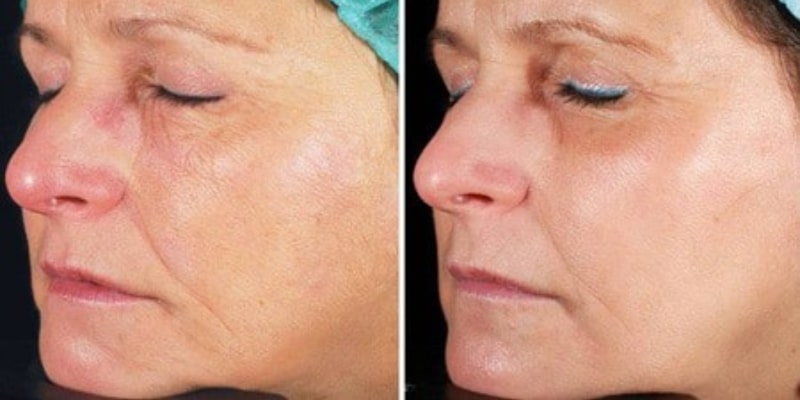Chocolate is undeniably one of the world’s most beloved treats. Its rich, creamy texture and sweet, slightly bitter flavor can brighten moods and satisfy cravings like few other foods can. Whether it’s a bar of dark chocolate, a milk chocolate candy, or a luscious chocolate dessert, indulging in chocolate feels like a small moment of joy. But what happens when you eat too much chocolate? Can overindulging cause physical or emotional effects? Let’s dive deep into how your body reacts to too much chocolate and why moderation matters.
The Chemistry of Chocolate: What’s Inside?
Before we explore what too much chocolate does, it helps to understand what’s in it. Chocolate is made from cacao beans, which contain several active compounds:
- Theobromine: A mild stimulant related to caffeine that affects the nervous system and heart.
- Caffeine: Present in small amounts, it can increase alertness.
- Sugar: Often abundant, especially in milk and white chocolate, which can impact blood sugar and energy levels.
- Fat: Usually from cocoa butter, which adds richness but is high in calories.
- Phenylethylamine (PEA): Sometimes called the “love chemical,” it can elevate mood by releasing endorphins.
These components make chocolate enjoyable but also mean it affects your body in various ways.
Immediate Effects of Eating Too Much Chocolate
Energy Surge Followed by a Crash
The sugar and caffeine in chocolate can give you a quick energy boost. This is why many people reach for chocolate when feeling tired or sluggish. However, this spike is usually followed by a “crash” as blood sugar levels drop, leaving you feeling even more tired and irritable than before. Eating large amounts of chocolate frequently can disrupt your natural energy balance.
Digestive Discomfort
Chocolate is rich and fatty, and too much at once can overwhelm your digestive system. Many people experience stomachaches, nausea, or even diarrhea if they overeat chocolate. This happens because the high fat content slows digestion, and sugar can ferment in the gut, leading to gas or bloating.
Increased Heart Rate and Restlessness
Thanks to theobromine and caffeine, overindulging in chocolate can stimulate your nervous system. You might notice a racing heart, jitteriness, or difficulty concentrating. For sensitive individuals, this can mimic mild anxiety symptoms.
Headaches and Migraines
Chocolate is known to be a trigger for migraines in some people, likely due to its caffeine and certain amino acids like tyramine. Eating too much can provoke headaches or worsen existing migraine conditions.
Long-Term Effects of Excessive Chocolate Consumption
While a little chocolate can be part of a healthy diet, consistent overconsumption can cause more serious health issues.
Weight Gain and Metabolic Problems
Because chocolate—especially milk and white varieties—is calorie-dense and high in sugar and fat, eating it in excess contributes to weight gain. Over time, this can increase the risk of obesity, type 2 diabetes, and heart disease.
Blood Sugar Spikes and Insulin Resistance
Frequent high sugar intake causes repeated spikes in blood glucose, which can lead to insulin resistance—a precursor to diabetes. People who binge on sugary chocolate treats might be putting their long-term metabolic health at risk.
Dental Issues
Sugar is a major cause of tooth decay. Consuming excessive chocolate can contribute to plaque buildup, cavities, and gum disease, particularly if proper oral hygiene is neglected. For those in Pittsburgh dealing with dental issues from sugary treats, consulting a specialist in dental implants in Pittsburgh can help restore both health and confidence.
Mood Fluctuations and Dependence
Chocolate can trigger the release of serotonin and dopamine, the “feel-good” brain chemicals. This explains why people crave it during stress or sadness. However, regular overconsumption may lead to emotional dependence, where you eat chocolate not just for pleasure but to manage mood swings—potentially masking underlying issues.
How Much Chocolate Is Too Much?
While the definition varies, nutrition experts generally recommend limiting added sugars to less than 10% of daily calories. For an average adult consuming 2,000 calories a day, that’s about 50 grams of added sugar. A single milk chocolate bar can contain anywhere from 20 to 30 grams of sugar, meaning just one or two bars can push you over the limit.
Dark chocolate with higher cocoa content usually contains less sugar but is richer in caffeine and theobromine, so overconsumption can still cause nervous system effects.
Tips for Enjoying Chocolate Without Overdoing It
Practice Portion Control
Instead of eating an entire chocolate bar, try having a small piece—around 20 to 30 grams. Savor it slowly to enjoy the flavor without overindulging.
Choose Dark Chocolate
Dark chocolate (70% cocoa or higher) has less sugar and more antioxidants, which can actually provide health benefits in moderate amounts.
Balance Your Diet
Pair chocolate treats with foods rich in fiber, protein, and healthy fats to stabilize blood sugar and digestion.
Be Mindful of Triggers
If you notice chocolate worsens headaches, causes digestive issues, or triggers anxiety, limit your intake accordingly.
Stay Hydrated and Brush Your Teeth
Drink plenty of water and maintain good oral hygiene to protect your teeth and aid digestion.
When to Seek Help
If you find yourself compulsively eating large amounts of chocolate, experiencing severe physical symptoms, or using chocolate to cope with emotional distress, it may be time to talk to a healthcare provider or nutritionist. They can help address underlying causes and develop healthier eating habits.
In Conclusion
Chocolate is a delightful treat that can bring pleasure and even some health benefits when enjoyed in moderation. However, eating too much chocolate can lead to a variety of uncomfortable and potentially serious effects on your body and mind. By understanding how chocolate interacts with your system and practicing mindful consumption, you can continue to enjoy this sweet indulgence without the drawbacks.
So next time you crave that chocolate fix, remember: a little goes a long way in keeping your body—and your sweet tooth—happy.





